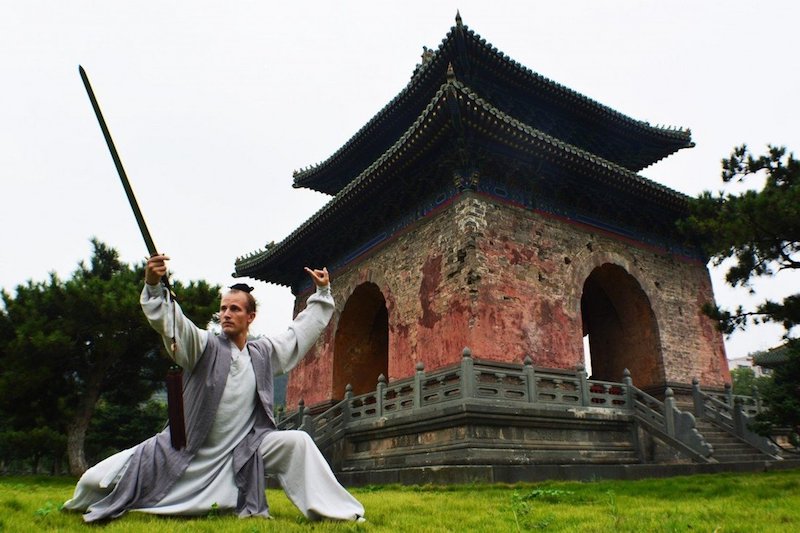

(quote)
Well, bless their hearts — Gen Z is killing the Southern drawl, y’all.
That’s according to a new study published in Language Variation and Change, which claims the classic Southern American accent has been slowly fading over time — with the younger generation now helping to hammer the final nail into the proverbial pine box.
“Today’s college students don’t sound like their parents, who didn’t sound like their own parents,” Renwick reckoned. “We noticed that older speakers often had a thick Southern drawl, while current college students didn’t.” For example, the team found that older Georgia natives pronounced the word “prize” as prahz and “face” as fuh-eece, but the youngest speakers use prah-eez and fayce. Renwick said that “changes to the diphthong in ‘prize’ are the oldest characteristic pronunciation in Southern speech,” with the distinctive speech trait having existed for “well over” a century.
“The Southern pronunciation of words like ‘face’ emerged in the early 20th century. These are distinctive features of the traditional Southern drawl,” she added. The most notable changes were found between Baby Boomers (those born between 1943 and 1964) and Generation X (born between 1965 and 1982). “We were surprised to see how rapidly the Southern accent drops away starting with Gen X,” Renwick said.
Study co-author Jon Forrest, UGA assistant professor in the department of linguistics, explained that “the demographics of the South have changed a lot with people moving into the area, especially post-World War II.” But he also made sure to note that the loss of regional accents can be seen all across the country. “We are seeing similar shifts across many regions, and we might find people in California, Atlanta, Boston and Detroit that have similar speech characteristics,” Forrest continued.
From Paula Deen to Julia Roberts, the Georgia drawl is fading, y’all
Starting with children of baby boomers born between 1965 and 1982, the typical accent began dramatically slipping away — a change that is showcased within two famous Georgia natives: think Paula Deen’s accent vs. Julia Roberts’s shorter-sounding vowels.
But it’s not like people suddenly woke up and decided to adopt an accent like Cher Horowitz’s in the film “Clueless.” According to the study, the change was sparked by the migration from different parts of the country into Georgia and other Sun Belt states after World War II. “You now have a lot of people growing up in a world where there are a lot of different kinds of accents and ways of talking,” said Jon Forrest, a University of Georgia professor who co-authored the study. “And these Gen X kids would’ve gone to school, for example, with people who had grown up somewhere else — so they gradually shifted their speech and passed that on to their children, and so on.”
After analyzing voice samples from White people born and raised in Georgia between 1887 and 2003, the researchers noticed a big change in pronunciation: The distinctive Southern “uh” that gives words an extra vowel sound — think buh-eet for “beet” or buh-eyt for “bait” — has faded, leaving a flatter, more pan-regional accent in its wake. “We found that all of those vowels are more Southern in older speakers, and less Southern in younger speakers — to the extent that younger speakers really have a completely different accent,” Renwick added.
What’s known as the stereotypical Southern accent actually began in the post-Civil War era — so no, the Hollywood-created accents in “Gone with the Wind” are not really authentic. Around that time, words such as “ride,” “prize” and “bike” suddenly became raahd, prahz and baahk. Over the next decades, more variations — such as the way “pin” and “pen” are pronounced the same way — would be added on until the accent reached its peak with the baby boomer generation.
The phenomenon isn’t limited to Georgia. The same thing is happening in Raleigh, N.C, Forrest said. Another example of how changes in demographics have shaken up language can be found in Miami, where decades of Latin American migration led to Spanish and English intertwining and evolving into a distinct dialect.
“A lot of previous regional varieties are going away,” he said. “It’s not always monolithically, but we’re seeing changes in accents that are similar to ones we see in other major urban areas across the United States.”
Sometimes, Forrest said, those changes could be subconscious and a product of people soaking up their peers’ way of talking. But, for others, negative stereotypes surrounding the Southern accent might have played a role in their opting to supplant the drawl as “we tend to reconstruct people from their cultural symbols, including their dialect.”
Today, with about 8.4% of people moving, according to 2021 US Census data, and Americans connected through technologies such as social media, accents continue, usually slowly, to shift.
Sometimes, though, the story isn’t about slow change. It’s about something dramatic happening. For instance, did you know an accent can change because of a Hollywood portrayal? The 1996 movie “Fargo” made people in the Upper Midwest think twice about their vowel shift, according to Dennis Preston, Oklahoma State University professor emeritus of linguistics, who spoke in a podcast episode.
But do we lose something with changing accents, especially those that come about because of social pressure? “We’re eliminating a lot of the rich history that people come with when we encounter different people,” Holiday said. “I would hate to see … social pressure cause the disappearance of these varieties that can tell us so much about the world that we live in in our history.”
The lure of a Southern drawl at the movies
“There are things you can get away with in this world, and things you can’t.” The voice is Matthew McConaughey’s, and days after seeing him in “Mud,” I can close my eyes and hear him still — a simple line echoing with the mysteries of a man caught in the emotional muck and Mississippi mud of Jeff Nichols’ fine new drama.
McConaughey’s voice is like that, so specifically seasoned by Texas you know it sight unseen. That’s the power of a drawl, the way it can wrap entire stories and an ocean of feelings in honeyed tones; the way it can fit a person, a character, like broken-in jeans.
McConaughey, from the Hill Country that hugs Austin, comes by his drawl naturally, but its texture changes with each film he does. It almost disappeared in “The Lincoln Lawyer.” It was thicker and meaner in “Killer Joe”; worried and worn in “We Are Marshall”; sweatier in “Magic Mike”; wasted on “The Wedding Planner,” when he was still in rom-com jail. But it has never been richer than it is in “Mud,” pure gold spun out of love for a girl.
Me, I pay attention to the distinctions when movies try to tap into that homespun magic. I’m fitful when Southern accents are forced, angered when they’re false and hold them close when, like McConaughey’s, they are true.
The years have only deepened my affection for the flavor of Southern accents, and their presence in movies can transport me back to other places, other times: Like country ham, redeye gravy and grits at my grandmother’s table next to Uncle SJ when I hear Tommy Lee Jones; a taste of great Aunt Ella’s fried green tomatoes, hot and sweet, in Julia Roberts’ warm tones; the scent of my granddaddy Harlen’s tobacco curing in the barn conjured up by Robert Duvall; hogs being slopped … well, I won’t mention who made me think of that last one. OK, Nicolas Cage in “Con Air.”
While a bad accent makes me cringe, the right inflection deepens and shades the story, and not just for me. It changes the texture of the experience for everyone. The way a weeping guitar can heighten anguish by clinging to a note, a drawl conveys so much more than mere words ever could. There is an easy wit that sneaks up on you, the humor often carrying an unexpected bite buried inside all that down-home irony, insight and cheek.
Accents, and specifically Southern ones, are an art form, yet sorely overlooked. Alabama is different from Georgia; North Florida distinct from South. Some of the best are from natives, but in “Junebug,” Amy Adams proved that being born in Italy and raised in Colorado didn’t mean she couldn’t bring home North Carolina. Sissy Spacek left every trace of Texas behind for her meticulous Oscar-winning turn as Kentucky’s own Loretta Lynn in “Coal Miner’s Daughter.”
And so, in an attempt to pay my respects, here are some of my favorite Southern movie drawls. Not a ranking but a range. On any given day, the one I love best depends on what place in my heart needs filling.
Hey, Y’all: Southern Accents Voted Most Attractive
According to a survey by dating site Cupid.com, the sing-song honey sweetness of the Southern accent is the country’s sexiest, and by a pretty significant margin. Cupid.com surveyed 2,000 men and women and determined that 36.5 percent of respondents voted the Southern accent the most attractive, with more men preferring it over women.
(unquote)
Image courtesy iStock and Pinterest






